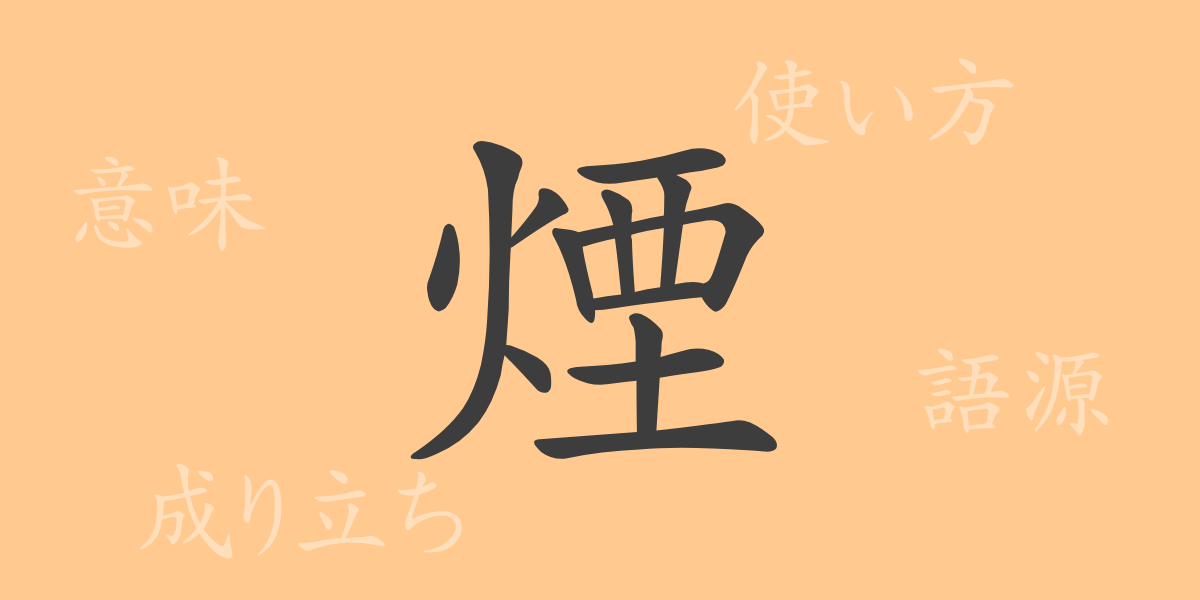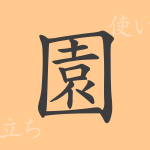“
Japanese culture and language possess depth and diversity. The commonly used kanji characters demonstrate a facet of this rich culture and are frequently used in daily life. “”煙”” (Kemuri) is one of the kanji characters representing a natural phenomenon that constantly surrounds us. In this article, we will explore the origin, meaning, usage, and idioms or proverbs using the kanji “”煙”” (Kemuri), unraveling its charm.
The Origin (Etymology) of 煙 (Kemuri)
The kanji “”煙”” (Kemuri) was born in ancient China, symbolically representing the appearance of a burning fire. It depicts the smoke rising from the flames, consisting of a combination of “”火”” (Hi), meaning fire, and “”气”” (Ki), signifying the rising smoke above it. This represents the energy possessed by fire and the resulting presence of smoke, which has been recognized as an element closely related to people’s lives since ancient times.
The Meaning and Usage of 煙 (Kemuri)
“”煙”” (Kemuri) refers to the gaseous substance generated when something burns. This kanji is used in various expressions, including metaphorical meanings, beyond literally representing smoke. For example, the expression “”煙が目にしみる”” (Kemuri -ga- me -ni- shimiru) describes the physical stimulation of the eyes by smoke, while the word “”煙たい”” (Kemu-tai) is used to express the unpleasant feeling caused by someone’s behavior or attitude to those around them.
Reading, Stroke Count, and Radical of 煙 (Kemuri)
The kanji “”煙”” (Kemuri) has multiple readings in Japanese.
- Reading: The on’yomi is “”en,”” and the kun’yomi is “”kemuri”” or “”kemu.ru.””
- Stroke Count: A total of 13 strokes.
- Radical: The radical is “”火”” (Hi), which serves as the basis for classifying kanji related to fire.
Idioms, Phrases, and Proverbs Using 煙 (Kemuri) and Their Meanings
There are numerous idioms, phrases, and proverbs containing “”煙”” (Kemuri). For example, “”煙に巻く”” (Kemuri -ni- ma-ku) means to change the subject or deceive someone to divert attention from the main topic. The compound word “”煙草”” (Tabako) refers to tobacco, a luxury item with a long history in Japan. Additionally, the expression “”煙が出るほど熱い”” (Kemuri -ga- de-ru hodo -atsu-i) represents being extremely passionate. These expressions are based on the visible characteristics of smoke and the sensations it evokes.
Summary of 煙 (Kemuri)
The common kanji “”煙”” (Kemuri) has played a significant role in our lives from ancient times to the present through its form and meaning. In a culture that uses fire, smoke is always nearby, and its presence is expressed in various forms of language. Idioms and proverbs featuring smoke convey messages that appeal to people’s hearts through their symbolic meanings. We hope that through this article, you can feel the deep history and culture embedded in the kanji “”煙”” (Kemuri).
“

























